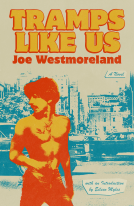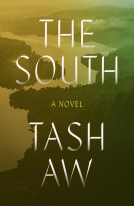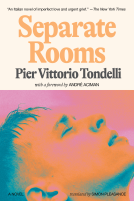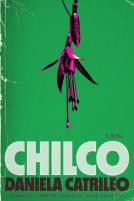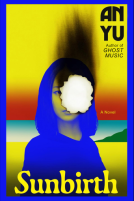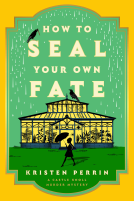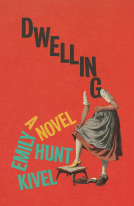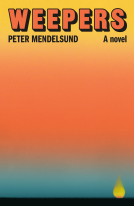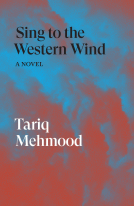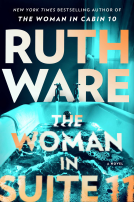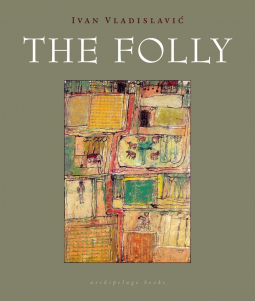
The Folly
by Ivan Vladislavic
This title was previously available on NetGalley and is now archived.
Send NetGalley books directly to your Kindle or Kindle app
1
To read on a Kindle or Kindle app, please add kindle@netgalley.com as an approved email address to receive files in your Amazon account. Click here for step-by-step instructions.
2
Also find your Kindle email address within your Amazon account, and enter it here.
Pub Date Sep 22 2015 | Archive Date Jun 23 2015
Archipelago Books | Archipelago
Description
Advance Praise
"Vladislavic is without doubt the most significant writer in South Africa today.”
— Focus on Africa
“The stunning language and lyric descriptions...have made Vladislavic one of the most renowned and respected writers working in South Africa today.”
— Tracey D. Samuelson, Christian Science Monitor
“ One of the most imaginative minds at work in South African literature today.”
— André Brink
“Vladislavić is a rare, brilliant writer. His work eschews all cant. Its sheer verve, the way it burrows beneath ossified forms of writing, its discipline and the distance it places between itself and the jaded preoccupations of local fiction, distinguish it.”
— Andries Oliphant, Sunday Times
“Vladislavić is one of the great writers of the fragment...A case could be made that [The Exploded View’s]
divided form is justified by its object: Johannesburg, which is, as cliché would have it, the ‘divided’ city. But
Vladislavić’s tightly knit prose belies this diagnosis. Sensitive readers are struck by the uncanny repetitions,
haunting resonances, and resounding echoes across the novel’s parts: by the work’s and the city’s unity, not
their partition.” — Jan Steyn, The Quarterly Conversation
“Vladislavić’s strength lies in translating a place, one that is as recognizable as anything in our everyday lives but that reveals truths that have been standing in front of us the whole time.”
— Justin Alvarez, The Paris Review
“Vladislavic’s notoriously difficult works have attracted the interest of and incited arguments among scholars, who consider him a renegade for his rejection of the conventions of realist political novels and his championing of broken forms and peripheral observations.” — Jenn Mar, Kenyon Review
“One of South Africa's most finely tuned observers.” — Ted Hodgkinson, The Times Literary Supplement
“ His stylistic virtuosity, sardonic wit, playful inventiveness, and his cool intimations of menace transmute the banal into something rich and strange loaded with comic and philosophical significance…”
—Lionel Abrahams, Mail & Guardian Review of Books
“Vladislavić has made non-fiction in its many forms – critical theory, the essay, (the illusion of) memoir –
rub against the domain of storytelling, resulting in an incandescently intelligent and profound work.”
—Neel Mukherjee, The Independent
“Vladislavić’s narrative intelligence [is] nowhere more visible than in his way with language itself. Each
section is perfectly judged; we enter incidents in medias res—as though they were piano études—and exit
them before we have overstayed our welcome.” — Teju Cole
Available Editions
| EDITION | Other Format |
| ISBN | 9780914671374 |
| PRICE | $16.00 (USD) |
Featured Reviews
 Educator 211653
Educator 211653
Thank you Net Galley. This is a fabulous, surreal, take on the changing landscape of South Africa in the nineties. Written with a feel for the poetry of language and phonetics, the book evokes mood by using words and their sound to elucidate the plot and create atmosphere. The constructions of imagination and fantasy fall to the harshness of reality. Objects of desire provide a brief respite/escape from the chaos around us but cannot keep the disorder at bay for long.
 Tom B, Media/Journalist
Tom B, Media/Journalist
First published in 1993, as South Africa’s apartheid era was finally coming to a close, Ivan Vladislavić’s The Folly invites initial reading as a political parable about that time and place, but easily generalizes to other utopian assumptions about a better life occurring immediately after political obstacles toward universal justice have been removed, although in the case of The Folly, not once is race, or apartheid for that matter, ever raised.
When a mysterious, eccentric character named Nieuwenhuisen (“Newhouse”) moves onto an empty plot of land next to the Malagases to claim his “inheritance,” Mr and Mrs (as the Malagases refer to each other) immediately become suspicious. Mr increasingly more curious than Mrs, and Mrs increasingly playing the role of the snooping, fearful biddy. For me, the first third of the book was the most interesting. Part of my interest was captured by the comic interplay between Mr and Mrs, and Vladislavic has a knack for one-liners and setting up funny scenes, that seem to come effortlessly to the page. But, more seriously, even though played with a light touch, was Vladislavic’s description of the camp Nieuwenhuisen has set up for himself, tromping through his acre plot, pulling up discarded detritus and seeing in it not garbage but potential practical life as a tool. Nieuwenhuisen is shown in these scenes as an intelligent, resourceful, inventive man—an engineer of sorts, who’s learned to transform what he has at hand into useful (if still potentially dangerous) goods.
Mr’s curiosity soon gets the best of him, and he prods the Nieuwenhuisen into developing a friendship. Given the unhappy marriage between the Malagas—Mr is shown twice repelling the advances of Mrs—and the romantic way of life Nieuwenhuisen represents—life lived under the stars, with fresh air and campfire-cooked food, Mrs is soon the odd one out, which only increases her distrust of Nieuwenhuisen, whom she feels is the first step towards chaos and calamity. Meanwhile, Mr ardently embraces Nieuwenhuisen’s vision of a new house on his plot of land, which he has outlined on the ground with a network of nailed and intertwining cord.
As The Folly drifts into fantasy—the imagining of a better world as exemplified by Nieuwenhuisen’s “house”—I found the book less satisfying. But that may be a shortcoming on my part rather than Vladislavic’s narrative abilities—my reluctance to play along with the fantasy, which, for Malagas, is crucial for the success of the plan. Still Vladislavic’s notions of hope for building a better world aren’t cynical. Instead, he tries to show that once the hopeful fantasies have vanished, the real work remains to begin.
 Deborah C, Reviewer
Deborah C, Reviewer
I'm a diehard Southerner, but if I ever considered moving to New York, the only reason would be to live near the offices of Archipelago Books. This publisher has an unerring eye for the best in international fiction, whether in translation or written originally in English. The Folly, written by South African Ivan Vladislavić, falls into the latter category, and it is absolutely sublime.
The easiest thing for me would be to simply appropriate Audrey Schoeman's Goodreads review. Like her, I filled my reading journal with so many beautiful passages that I might as well have copied the entire book. As Audrey observes, Vladislavić is a master of poetic prose, particularly in his description of everyday things, whether the "socks rolled into balls and swallowing their own toes" or Mr. Malgas's beloved overalls:
"Each job had left a blemish on the cloth - a birthmark of enamel paint, a festering oil-stain, sutured cuts and tears, scabs of wood glue and Polyfilla."
Vladislavić tells us that for Mrs. Malgas, "[j]ust to look at them gave her pins and needles in her hands"; just to read about them gives me pins and needles in my soul.
None of the other Goodreads reviewers, however, has pointed out two other things about this book which intrigued me. First was the title, which alludes to both meanings of the word "folly." Its primary definition is lack of good sense or foolishness, and that is clearly how Mrs. Malgas views her husband's efforts to assist Nieuwenhuizen in building his new house. However, a folly can also be an ornamental (and usually costly) edifice with no practical purpose; while Nieuwenhuizen's house is not costly, being constructed (to the extent it exists at all) from salvaged and repurposed materials, it certainly lacks any practical purpose because it is merely a figment of the men's imaginations. I don't know enough about South Africa, during or after apartheid, to recognize whether the idea of an architectural folly has political significance, either on its own or as compared with other cultures in which such buildings are typically found, but one of the joys of The Folly, and Archipelago's other titles, is that I want to dig deeper to find out.
My second observation involves Vladislavić's use of terms which seem to have Christian significance. I read an ARC, so it's entirely possible that this was a typographical anomaly corrected before publication, but almost immediately after Mr (as the spouses refer to each other) starts actively working on Nieuwenhuizen's plot, Mrs starts referring to Nieuwenhuizen as "Him": "'Typical,' she sniffed. "You’ll give Him the shirt off your back, although you don’t know Him from Adam, while your own family goes hungry." Christians use such capitalization when referring to Jesus; is Vladislavić suggesting that Nieuwenhuizen is some type of Christ figure? Similarly, when Mr picks up the unusually long nails (spikes, as in the Crucifixion?) Nieuwenhuizen has requested, they are packaged in two boxes of a gross each, with the remaining dozen wrapped separately: "the surplus dozen - the Twelve, as he thought of them." The Twelve traditionally refers to the twelve apostles; is Mr drawing a parallel here between the nails and the apostles and, if so, what does he mean?
Regardless of the answers to these questions (if there even are any), The Folly is a language lover's dream, and the cover design selected by Archipelago is exquisite as well. I highly recommend The Folly.
I received a free copy of The Folly through NetGalley in exchange for an honest review.
 Kel M, Media/Journalist
Kel M, Media/Journalist
Obsessions and reality
The Folly by Ivan Vladislavić (Archipelago Books, $16).
Ivan Vladislavić, a South African author of Croatian descent, writes in a post-modern, surreal vein, and in The Folly, he tells the story of Nieuwenhuizen, a new arrival in a South African farming community.
Of course, his neighbors are curious, especially when he describes his grand vision of the house he wants to build, but what starts out as helpful assistance from one of the neighbors, Malga, develops over time into an oddly submissive and strangely obsessive relationship. It’s such an odd–then weird–thing that people notice, as neighbors in a small town will.
The question, of course, is just how real the “mansion” that they build using recycled tools and materials is–and just how “real” anything can be. The absurd and the allegorical twine into a fascinating short novel in this beautiful American edition from Archipelago Books.
 Andrija F, Educator
Andrija F, Educator
*The Folly* by Ivan Vladislavic is a novel that examines themes of urban transformation, personal ambition, and the nature of creativity. The story revolves around a protagonist named Mr. Malgas, an architect who embarks on a grand project to build an elaborate, imaginative house in a rapidly changing urban landscape. The novel explores the impact of societal changes on individual dreams and aspirations, as well as the tension between personal vision and external realities. Vladislavic's writing is characterized by its sharp observations and its blending of realism with elements of the surreal, offering a thoughtful commentary on the intersection of personal and collective experiences in contemporary South Africa.

